Blog
Celebrating Women’s HERstory Month: Terry Stigdon

As an agency founded and led by a Black woman, ASCI values the impactful contributions made by women of color who continue to lead with conviction and strength in order to best serve children and families. In honor of National Social Work Month and Women’s History Month, ASCI spoke with five influential female leaders in child welfare to highlight their powerful stories, impacts on children and families, and visions for the future.
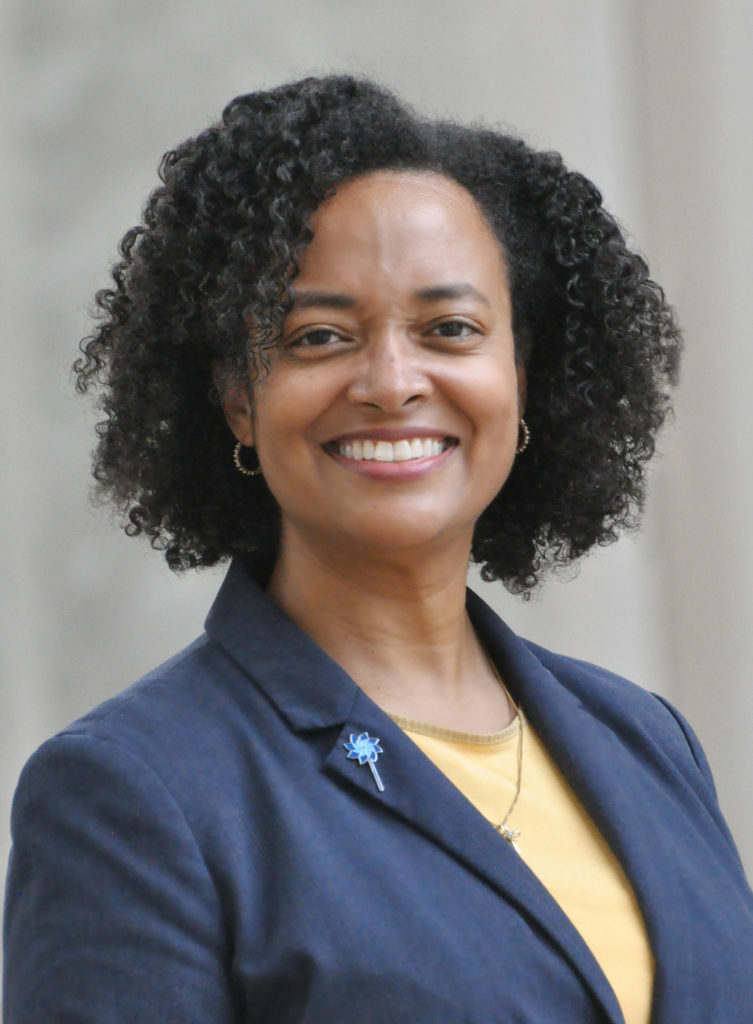
Terry J. Stigdon, MSN, RN
Director, Indiana Department of Child Services
Although fairly new to the child welfare space, Terry Stigdon is not new to the concept of serving children and families. With almost 20 years of experience in nursing, Director Stigdon uses her unique health care perspective to empathize with the children and families she serves. Her strong value for “customer service” helps her to ensure everyone she is tasked with helping—from her team to children, youth and families—can maintain their voice, are heard and are authentically cared for.
ASCI: How long have you worked in child welfare?
Director Stigdon: Three years. I actually just celebrated my three-year anniversary in this position on January 22.
ASCI: Coming from where you were in health care, what made you choose to work in child welfare?
DS: When people hear that I worked in pediatric nursing, they kind of see it a little bit, of coming to child welfare, but my role at the Children’s Hospital here in Indiana was focused on the emergency department, the trauma program and behavioral health. Before that, I was actually a staff nurse and a manager in the Intensive Care Unit, and so I had some exposure to Child Protective Services, but clearly only from a health care perspective. So, when I was approached about doing this job, I thought, “Gosh, this sounds really big; I do not know if I am really the right person for it,” because, to be honest, there was so much I did not know.
But what I learned very quickly was, what I knew from health care and working with children and families absolutely prepared me to at least have empathy for the families that we work with and for the workers that work with our families—you know, from both perspectives—because as an emergency department nurse, you are in the trenches working directly with families. They may or may not get what you are saying. Kids do not come by themselves, they come with a family unit, and all those families look different when you look at the path that a child takes to the emergency department, from the initial triage to their disposition. It is almost identical step-by-step to how they go through the child welfare system, I kid you not.
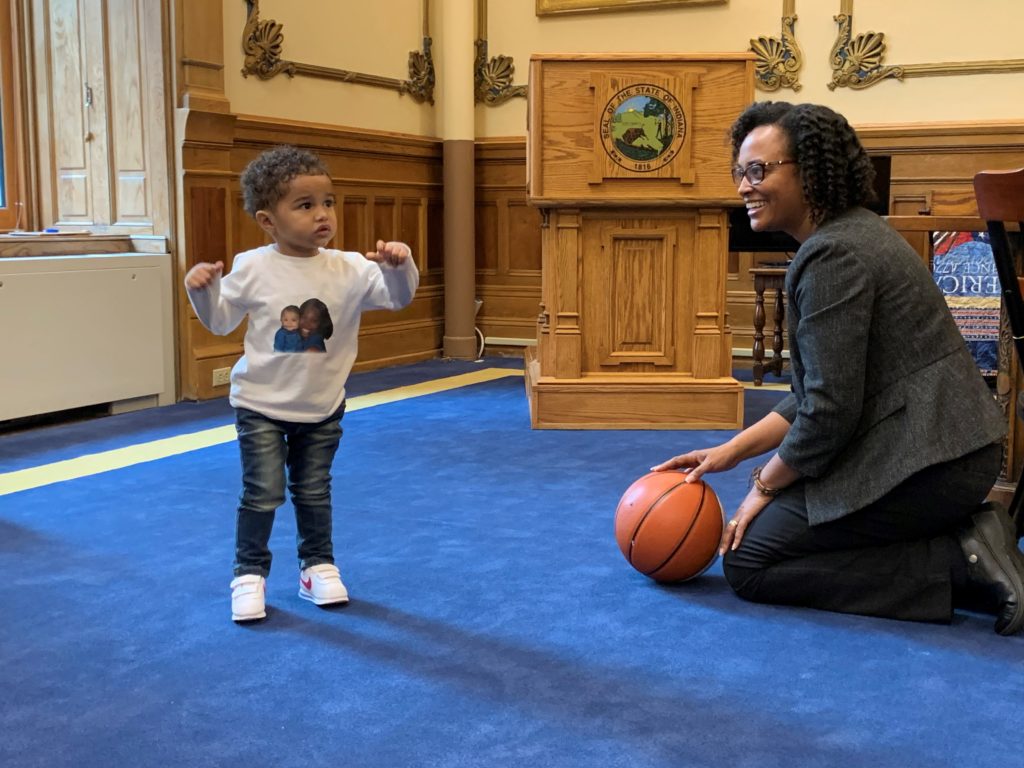
I actually did a presentation on that for emergency nurses so that they understood how much more they knew about child welfare than they realized. So, when I was approached about this position, while I was very open-minded and very wary of what I did not know, I really just wanted to make a difference in a different way to a set of children and families that were in need in a different way. I had past experience in leadership through the Emergency Nurses Association; I think that prepared me as well for this job. I did not really see it until I was in it.
ASCI: Are there other lessons from your previous role in health care that you find relevant in your current role?
DS: I would say that the voice of the customer in health care is critical to making improvements, and it is no different in child welfare. Historically, I think we all believe that we are doing the best for families, and hearing what they have to say may not necessarily create change. It is more of a “Well, that is how they feel, but we know what is best.” I would say that child welfare is now doing what we have done in health care in the past: recognizing that that voice is so much more than just validation or opposition to what is being done, that that voice is critical to change. So, I would say that that is a lesson I learned in health care that is just as relevant to child welfare today. It is the voice of those that we serve that is critical.
ASCI: What role do you think bias has played in such silencing of the Black family voice?
DS: Unfortunately, it has been the driving factor of silencing families. I know people like to believe it is unintentional, even in health care, [but] I think sometimes people do recognize that bias and believe it is justified. So, unfortunately, without calling it out and including a diverse group of customers and those that you serve at the table to make improvements, you [are] going to continue making the same mistakes, but we have to be willing to call out bias. And that is something that I know health care is learning right now along with child welfare. It is very messy, but we have to be willing to wade through the discomfort that people feel and not feel so rushed to change the conversation and make people feel better, because we have made a lot of people feel certain ways and have given them care that was less than, just because of our own biases. It is time to call that out.
ASCI: What have you found to be most fulfilling about working in child welfare?
DS: There is so much, but let me focus on my favorite population, which there is a parallel: My favorite population as a nurse was always working with adolescents. They were the most challenging, but man, I had the best time with them and I would say that has been the most fulfilling of my work in child welfare. It is being able to speak directly to a lot of our older youth, our adolescent, and our young adults in the system. They are so direct and refreshingly honest, you know? In my position, unfortunately, I get faced with people and imposter syndrome—like, I do not need you to try to be better or try to pretend like you are better than what you are. Just be who you are. That is absolutely what I need. I am a wife, I am a mom, I am a nurse, and with that nurse, I am an ICU and ER nurse. And those nurses are the ones that are known as just being straightforward, because you do not have time to deal with all of the niceties.
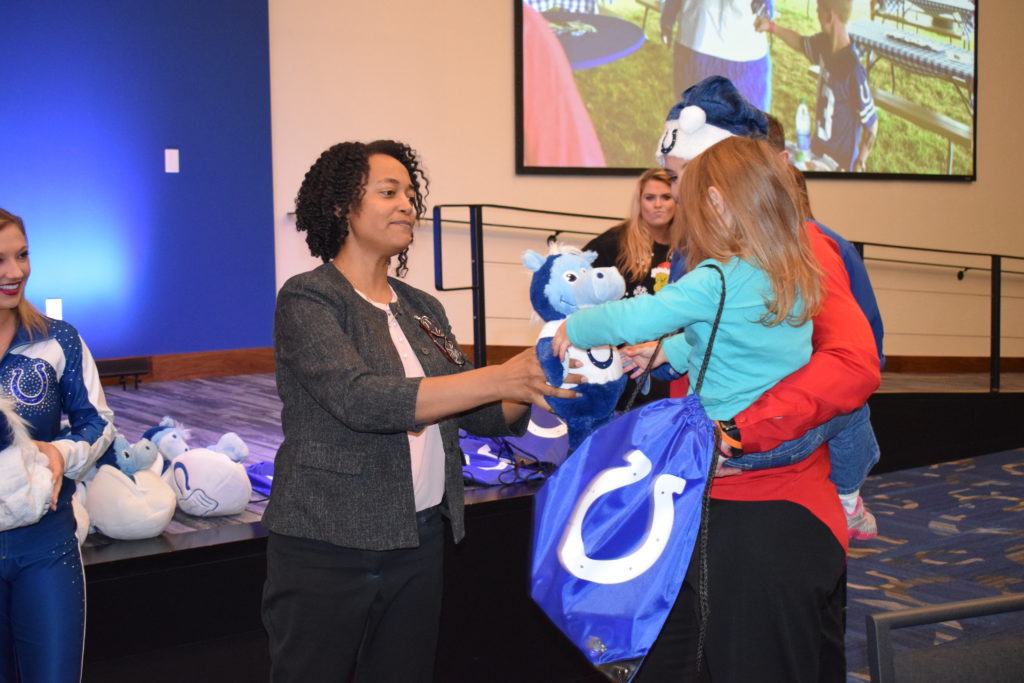
Sometimes you have to get right to the point, and that is how I lead. With these young people, I always tell them, “You do not have to worry about how you say something, just say it.” They are refreshingly transparent, and that has been the most fulfilling. Every month, I have a meeting with young adults or older youth called “Lunch with a Leader.” It is my favorite part of my job. I do not have an agenda, except that they bring the agenda. Whoever shows up, [it’s] what do you want to talk about? We provide lunch. They have all been virtual because we started during the pandemic, because I really wanted to hear how we could serve them better and help them better during the pandemic. We get Doordash, Uber Eats, whatever the voucher is, to make sure that they get lunch, too, so while eating, we always start off with, “What do you have?” And they share Panera, McDonald’s, Burger King, whatever. That is kind of fun to get things started.
They do not have to share their name if they do not want to, and they do not have to turn the camera on if they do not want to, but their voices are always heard and always appreciated. I do not record the meeting out of respect for them and their privacy, but I do let them know I take notes, and they have already helped contribute to some really amazing changes within our agency and how we work with our older youth.
That is what it felt like to me; it is not just hearing from them, but seeing it actually make a difference, because they deserve that. They do not need to be placated or be condescended [to] for us to say, “Oh, that was really nice, and what a touching story,” and then we move on. That does not value them, and they deserve more. So. I would say the most fulfilling part of my job is when I get to speak to the people that we serve. We also have a birth family advisory counsel that I have been able to pop in on. Unfortunately, they usually meet when I work at my other job, so I do not always get a chance to really talk to them, but I do pop in because our families and our children that we serve are drowned out by all the other voices that “know better.” It is fulfilling to me to hear the truth and how we actually do impact their lives, because that is what drives us to be better.
ASCI: What do you think needs to be changed about the current child welfare system?
DS: I am going to pull back to nursing again because remember, that is my frame of reference; I have been a nurse for 25 years.
I really think when you look at the child protection work, it needs to be seen as a profession, and I do not think it really is. It is not that I believe that my peers around the country now see it as a profession, that is not the problem. The problem is, how do we elevate child protection and have something nationwide, whether it be standard or established through a national organization, that says this is the foundation of what we do? Because every state does things differently, and we know that people travel, people move from state to state, whether it be a worker or a family that is being served, and by not recognizing it as a profession and having national standards, national beliefs, even a creed that says, “This is what we believe as child protection professionals,” it really takes away from the pride that I think people should have when working with families. Do we have things we need to change in the system? Absolutely, but it does not mean that our workers should not have pride in the beautiful work that they do to meet families where they are and to do their best to help them achieve their own greatness, so that we can walk away and they can be successful without us there. I would love to see that happen.
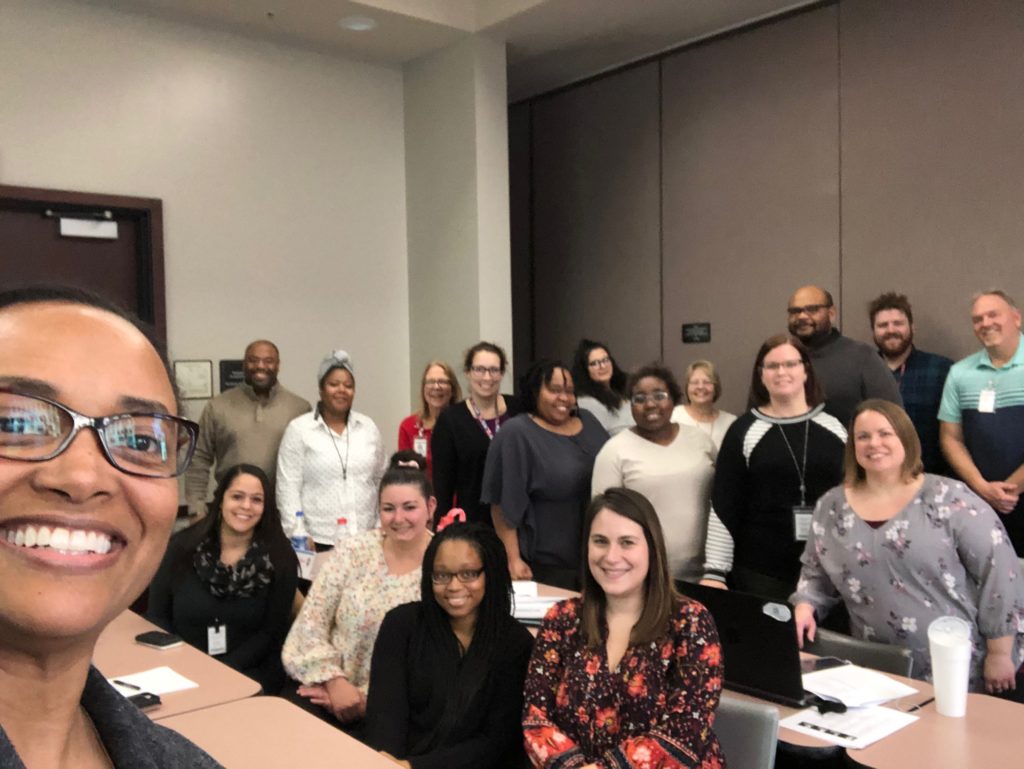
I am still a member of the Emergency Nurses Association. It is extremely important to me to stay connected to fellow nurses, and I think about how that started with two nurses back in the day. I think we just celebrated our 50th anniversary last year, but it was a grassroots organization and it started with: “We have patients that are critical and we do not have a standard code cart. How can we get a standard code cart that has all the necessary items based on what has been established when someone is in trouble in cardiovascular or pulmonary failure? What is it that they would need to get better and potentially survive?” And that is how ENA started.
When I think about child protection workers, I go, “Gosh, it is so easy to throw them under a bus,” and there was no national organization to come forward and say, “These are our standards within the United States that say this is how child protection work should work,” because every state has it figured out on their own. And while there is some federal guidance—I am not saying that this should be something federally driven—I love grassroots organizations, and I would love to see a national organization that serves the workers. We have national organizations that serve the leadership, but none that serve the frontline. I would love to see that, because we could really, I think, potentially change. And I say potentially because you have to have all the players involved. We could transform child welfare into a family well-being system. We really, really could, but our child protection workers are floundering and they need more support—I would say more national support.
ASCI: How do you believe your current work is advancing reform in the system? Are you doing anything specific to aid the changes you just suggested?
DS: I have learned a systematic approach to strategic development and deployment and I have been applying the Lean Methodology to improving processes within our system. But part of that is not just improving a current process, it is throwing the box away, forgetting that there is a box, and being really creative in how we put a new solution in place. The other thing is that when we have improvement events, we also are including the voice of others so it is not just DCS personnel. We kicked off our out-of-home value stream analysis and essentially, all that is a big term for: Let us look at it from the moment we determine that a child needs to be removed from their home of origin to the time that they either go back home or their case is closed for whatever reason. Whether it is home, adoption or guardianship, or APPLA/OPPLA—which I cannot stand. But all the things that happened in there, what is it? What processes do we need to work on?
When we kicked off that value stream analysis, we actually had one of our juvenile judges on the team to help us identify barriers, and we included the voice of older youth and our foster parents because foster parents are a large part of, when our kids are out-of-home, who are they with? Foster parents, relatives. Including them at the table during improvement work is a part of the transformation. I think that is how we really make a change, because if we just have us, we can get stuck inside of what we always know, and we just move a little bit where it is comfortable. I need people to be uncomfortable. That is the only way we’re going to transform.
ASCI: Can you speak to what you feel your biggest accomplishments have been in the field?
DS: My biggest accomplishment was having our frontline workers realize that they are a customer, too, that they are my customer, and that I serve them…helping them realize that their voice was important, too, and that it matters. They are involved in these improvement events. This is not a top-down approach. I set the strategy and say, “This is where we need to go with our executive team,” and then our frontline helps us get there. We are still on a journey, but it has been really neat. Every Friday, I send out a Friday update to the whole agency and it is just, what am I thinking or what have I experienced that week? I get feedback every Friday from those emails, and I can see the change from three years ago. So, I would say that is the biggest accomplishment, getting the team to know that their voices matter and that they are a part of the change.
ASCI: How have you seen kinship care evolve within child welfare? Can you describe your own experiences with kinship care practice?
DS: I have told many people this story. My late grandmother, who I miss all the time, was an amazing woman. She was the person in the family that took care of the kids. I mean, she took care of me and my sisters every summer as I was growing up just to, I guess, give my parents a break or whatever, but it was wonderful to get to spend time with my grandmother. Well, when she was, if I get her age correctly, I believe she was 70 or 71 at the time, she received a call that my first cousins—there were seven of them—were going to be removed from their mom and placed in foster care. Their dad was overseas, I believe. My grandmother’s mantra was: We do not turn our backs on family. And so, she went and got my cousins and raised them into adulthood. Most of them and the others, as she got older and was not able to do anything, other family helped out because that is just what family does.
When I think about that back then, 20 years ago, it is a long time ago and she was able to take them from another state and raise them, and she even told me that she did not want any government assistance. She did not want them involved. I do not know how much the government helped her, but it could have been that they said, “Great, you are going to take them, you are going to be responsible, that is fantastic, we are going to move on.” When I think about relatives and what I have heard from those that have been working in this field for a long time, relatives were kind of “OK,” either, “That is great you can take them and let us know if you need anything,” or, “Relatives are not good enough; the apple does not fall far from the tree. The kids are not going to be any better off, because look at the kids’ parents. If the parents are doing this and that, it is all the grandparents’ faults,” which is really unfortunate because that is really a very strange, dishonest look at family units and how families develop and grow.
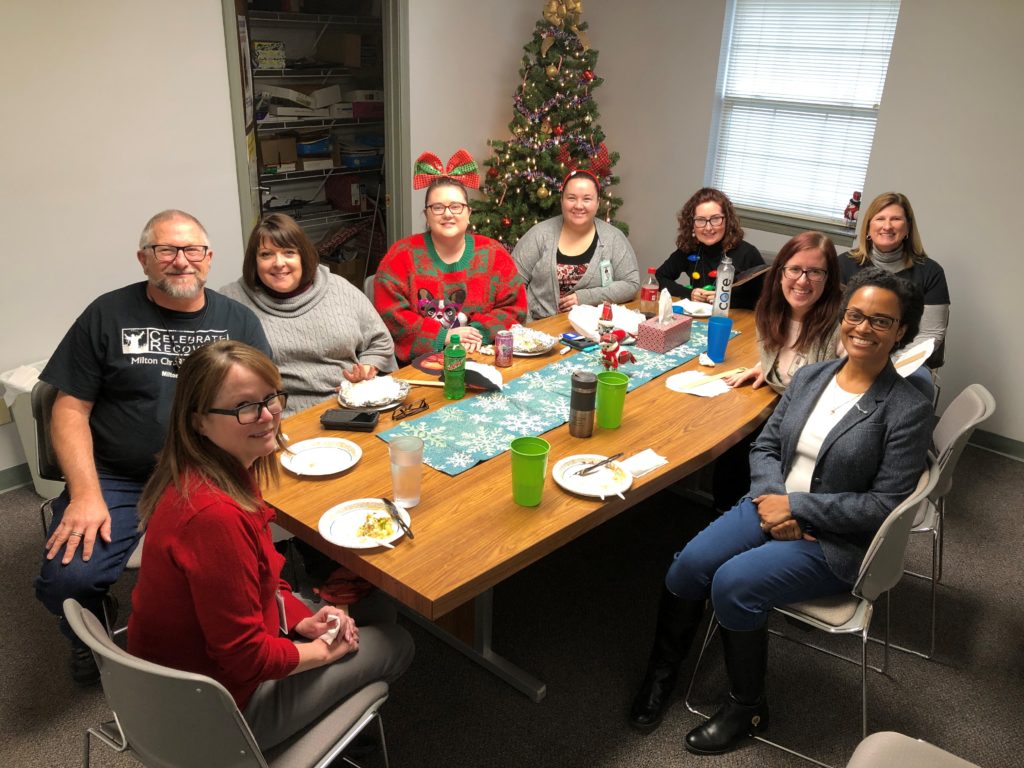
Now, the recognition of trauma on children having to leave their home of origin [and] go to live with someone that they do not know and have never met…no matter how wonderful and kind those people are, it is still traumatic to those children, because their whole lives have been turned upside-down. If they have to leave their family, then can they be with other families? And I would say that nationally, everyone recognizes that that is the best thing, and FFPSA [Family First Prevention Services Act] came along and said out loud: “Families first.” If a child cannot be kept safely at home with their family of origin, then can they be with family, at least people they know. And it was changing it from, as I said before, us saying what is best [to us] listening to the people we serve, to do what is best from their perspective, and that is where relative care comes in.
Recognizing the trauma on children was a great way of showing what is happening to these kids. It is very important to their well-being and their outcomes. We have to look at it from their perspective and instead of going where we are financially driven to go—which is foster care because of the federal reimbursement for foster care—let us do what we can for families. Right now in Indiana, we are really reimagining what kinship care can be and have made some changes, but we are about ready just to flip it on its head and do it completely differently to serve our relative families the way they deserve to be served, so that those kids can have stability whenever they are removed from their homes.
ASCI: What advice would you give other young women working in child welfare or considering it?
DS: I have talked to a lot of young women, not just in child welfare but in other professions. Having that privilege to be able to do so, I would really encourage them to have someone that they can lean on, that they can trust, that is not currently working in that field. Or, if they need to have formal therapy occasionally, only because there are things that women experience throughout life…we did not recognize this trauma at the time. And working in child welfare, even if they have had no experience in that system, they are going to be exposed to things that might bring back memories. It is going to make it very difficult for them to handle the situations and move forward. I think that might sound really weird to some people until you realize what our workers have to encounter out in the field. It is not just compassion fatigue; actually, it is trauma that has resurfaced or surfaced because our brains are complicated in fabulous [ways], and our bodies and our brains protect us from things that have happened and shuts it away. So, being prepared to deal with potentially traumatic situations, I think, will better serve any women looking to go into the child welfare field.
The other thing I would say is, I would encourage them to know their voices and to speak up. [This] is a woman-dominated field—and it is a lot like nursing is—but it is amazing how quickly women’s voices can get silenced by men, and it is not necessarily the men working alongside them, but it could be men in the legislature. It could be men that are service providers. So, I would encourage them to know their voice, speak for the children and be honest with themselves about where they are mentally and emotionally in this work.
ASCI: Finally, what are you looking forward to in your career moving forward?
DS: I want to have created an environment where transformation is expected and embraced, where they do not need me anymore. I want to be worked out of a job so that the job that I have today looks different than the job I have three years from now, even if I’m in the same position. That we are focused more on prevention, that we do intervene when we need to intervene, but even how we see that is different. Because even today, the way we intervene or the reasons we use to intervene, some of them are antiquated and so, if we can really listen, really hear what families are saying to us and how we can serve them and have better outcomes for children, things could look very different.
I am serious about working myself out of a job. I want to get to the point where I am always mindful of succession planning. I would love to say, you know, in three years or four years say, there is a new administration, which there would be, and they say, “OK, Terry, we do not need you to do your job anymore,” then I walk away feeling good about that. That I do not feel pushed aside, that I go, “It’s OK, because my work is done here. I have an amazing team of people, they do not need me to tell them, they already know, they just needed me to break down barriers for them, and they have got this.” That is what I really look forward to: What I am going to do after this? I have no idea, but I am open. I am very open. I am very open to going back and working in triage from the 3 p.m. to 11 p.m. shift in the pediatric emergency department, if that is what they need me to do. I am open to that. I was created for a life of service, and I just look forward to serving in whatever I do in the future.